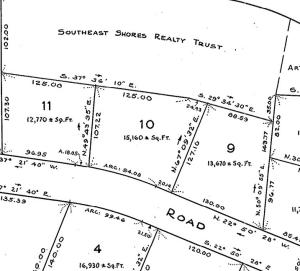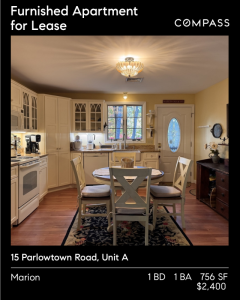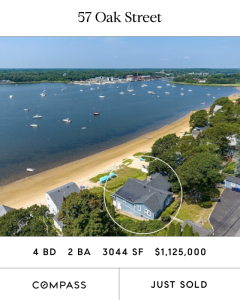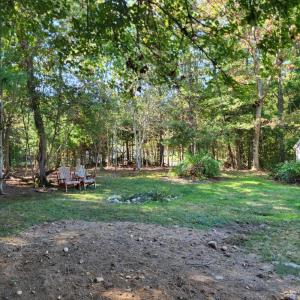Middleboro School Committee tables change to public comment policy
 Lincoln Andrews disruption of the July 24 School Committee meeting caused a recess. Source: MCCAM.tv
Lincoln Andrews disruption of the July 24 School Committee meeting caused a recess. Source: MCCAM.tv Lincoln Andrews, refused to relinquish the microphone, demanded that committee members state their names and eventually climbed onto the stage to shout at the board.
Lincoln Andrews, refused to relinquish the microphone, demanded that committee members state their names and eventually climbed onto the stage to shout at the board. State Rep. John Gaskey disagreed with the proposal and cautioned against changing the public comment policy.
State Rep. John Gaskey disagreed with the proposal and cautioned against changing the public comment policy.  Diane Fay agreed with Paula Fay that the School Committee agendas lacked detail.
Diane Fay agreed with Paula Fay that the School Committee agendas lacked detail.  School Committee Chair Zeke Lewis said the intention behind the change was to move public comment to beginning of the meeting, rather than throughout.
School Committee Chair Zeke Lewis said the intention behind the change was to move public comment to beginning of the meeting, rather than throughout.  Lincoln Andrews disruption of the July 24 School Committee meeting caused a recess. Source: MCCAM.tv
Lincoln Andrews disruption of the July 24 School Committee meeting caused a recess. Source: MCCAM.tv Lincoln Andrews, refused to relinquish the microphone, demanded that committee members state their names and eventually climbed onto the stage to shout at the board.
Lincoln Andrews, refused to relinquish the microphone, demanded that committee members state their names and eventually climbed onto the stage to shout at the board. State Rep. John Gaskey disagreed with the proposal and cautioned against changing the public comment policy.
State Rep. John Gaskey disagreed with the proposal and cautioned against changing the public comment policy.  Diane Fay agreed with Paula Fay that the School Committee agendas lacked detail.
Diane Fay agreed with Paula Fay that the School Committee agendas lacked detail.  School Committee Chair Zeke Lewis said the intention behind the change was to move public comment to beginning of the meeting, rather than throughout.
School Committee Chair Zeke Lewis said the intention behind the change was to move public comment to beginning of the meeting, rather than throughout. The Middleboro School Committee tabled a proposed revision to its public comment policy on July 24 during a meeting where residents shared mixed feedback and a former Select Board member climbed on the stage and shouted at the board — prompting a recess.
The current public comment policy allows residents to approach the microphone throughout a meeting. The proposed change would limit public comment to the first 20 minutes, allowing attendees to address the committee on that evening’s agenda — and any topic within its purview — only during the allotted time.
The revision was influenced by input from the Massachusetts Association of School Committees and is intended to improve the structure and flow of meetings. Sean Costello, Middleboro’s representative from the state association, told the board that many school committees across Massachusetts use a similar public comment structure.
“What we aimed to do was take people who were responding to individual items and take that part and pull it into the public comment section,” said Committee Chair Zeke Lewis. “So rather than responding to each individual item as they came up, we wanted to take all of that and put that in the public comment period.”
Both the current policy and the proposed revision limit public comment from an individual to three minutes — and the chair must give permission for the same person to speak on a topic more than once. However, exchanges between residents and the committee often exceed those parameters. At the previous School Committee meeting on June 26, comments and questions from a single member of the public lasted roughly 25 minutes.
In both versions, the policy clearly states that public comment is not a “dialogue” with committee members. The current and proposed version also note that if the committee believes an issue warrants a dialogue, it may schedule a separate public hearing to address it.
“The committee never wanted to silence anyone,” Lewis said. “We were just trying to make the process of the meeting smoother. We still want to hear from you.”
The proposed change prompted about a dozen residents to attend the July 24 meeting and share their opinions. Tensions escalated when one speaker, former Select Board member Lincoln Andrews, refused to relinquish the microphone, demanded that committee members state their names and eventually climbed onto the stage to shout at the board.
“You’re cowards. You cannot stand hearing any criticism from anybody. I’m not going to give this up until you give me your names,” Andrews yelled.
“You can’t see their faces, you can’t see their eyes,” he said, gesturing to the audience in the auditorium. “Well now you can see mine,” he told the board as he stood on the stage.
The disruption resulted in the committee calling a recess to restore order before the meeting could proceed.
Prior to Andrews’ outburst, several other members of the public shared their opinions, with some supporting the revision and others opposing it.
“When I first started attending School Committee meetings I was surprised to hear public comments during agenda items,” said Dody Adkins-Perry. She told the committee that at meetings of other municipal boards, such as the Gas and Electric Commission, residents must get permission to speak outside of the allotted public comment time.
“I think the proposed change in public comment policy is reasonable and will result in people being prepared,” she said.
Others disagreed, including Select Board member Teresa Farley and State Rep. John Gaskey.
“Parental involvement in a child’s education is crucial to academic and overall development. We need to keep that line of communication open and welcome it. Let’s not close more doors,” Farley said.
“I have attended many, many meetings, and it does not get [disruptive] until this kind of thing comes up,” she added.
“Right now you’ve got a pretty good point where you have people being able to hear what your thoughts are and being able to come up and speak directly to that,” Gaskey said, cautioning against the proposal.
Gaskey also told the board that the agendas for School Committee meetings lack detail, and in order for residents to comment effectively, they need access to the same information committee members have.
“Without specific details within the agenda, it puts people at a disadvantage and it creates friction between you, the board, and the parents,” he said.
Others agreed that the agendas lack detail.
“I want to stress that based on this agenda, I as an individual have absolutely no idea what you’re actually going to be voting on,” said Paula Fay.
Some residents expressed even stronger opinions on the change.
“It’s appalling this is even on the agenda and we’re even discussing this tonight. You cannot silence parents. I don’t know why you think you have the right to do that. You’re only sitting up there because we elected you to represent us and you are not doing that,” said Leah Machado.
School Committee member Sue Pennini concluded the matter by recommending the board table the proposed revision and allow the policy subcommittee to further review the change.
“We have a variety of factors that we need to take into consideration. One, we must follow the law. Secondly, I think that we need to balance our need to hear from the community with protecting the time for us to talk with one another about these topics and do what people have elected us to do. Thirdly, we need to take into consideration our community and what the culture for governance is here,” Pennini said.




































